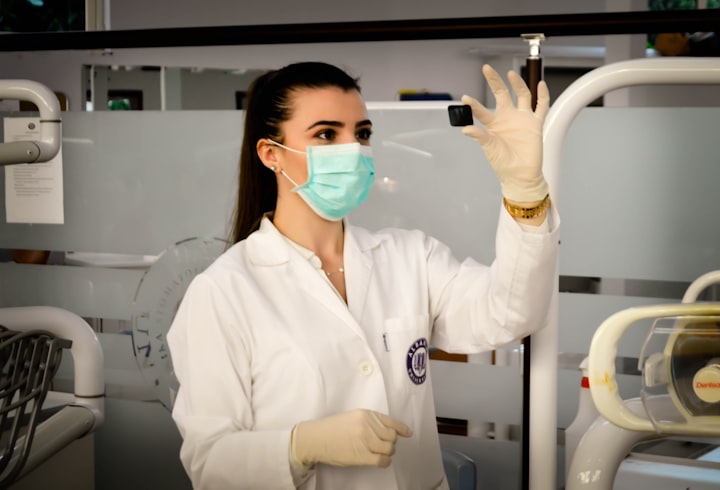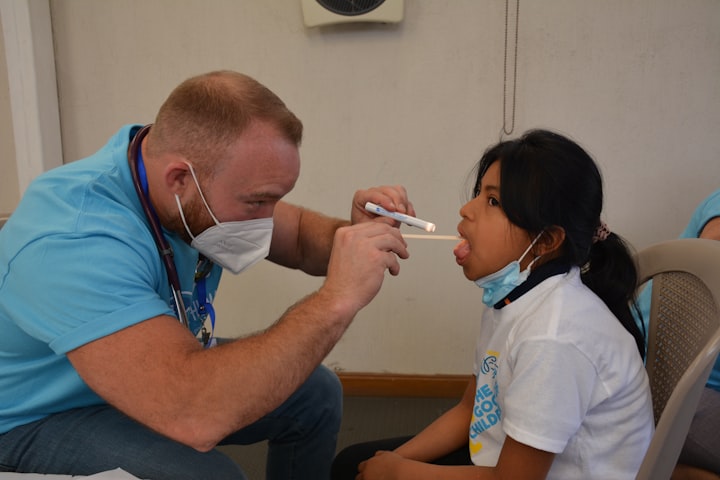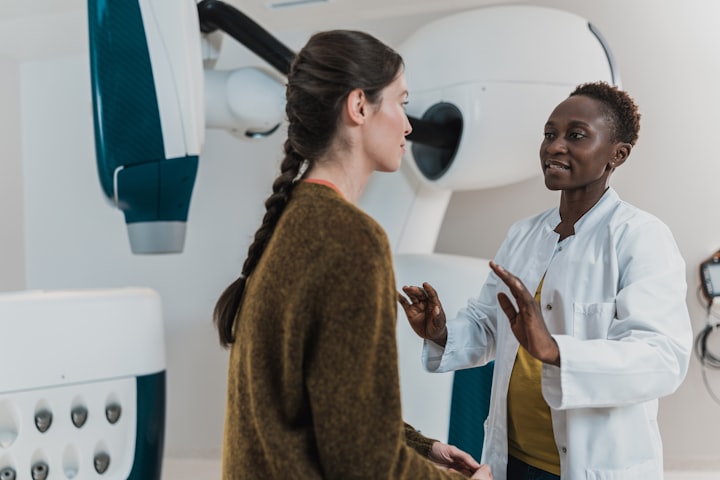Preventative Health: The Importance of Regular Check-Ups and Screenings
Identifying and Treating Health Problems Early for a Healthier Life

Preventative healthcare is an approach to healthcare that focuses on maintaining good health and preventing illness before it occurs. This involves regular check-ups and screenings to identify potential health problems early on, allowing for timely interventions and treatments. Preventative healthcare has numerous benefits, both for individuals and for society as a whole. In this article, we will explore the importance of regular check-ups and screenings in preventative healthcare.
What are regular check-ups and screenings?

Regular check-ups and screenings are medical tests and examinations that are performed on a routine basis, even if you are feeling well. The purpose of these check-ups and screenings is to identify potential health problems before they become serious, allowing for early interventions and treatments. Regular check-ups may include a physical examination, blood tests, and other tests depending on your age and gender. Screenings, on the other hand, are tests that are performed to detect specific diseases or conditions, such as mammograms for breast cancer or colonoscopies for colon cancer.
Why are regular check-ups and screenings important?

There are numerous reasons why regular check-ups and screenings are important. First and foremost, they can help identify potential health problems before they become serious. Many diseases and conditions can be treated more effectively if they are caught early on. For example, breast cancer is much more treatable when it is detected in the early stages. Regular mammograms can help detect breast cancer early, allowing for prompt treatment.
Regular check-ups and screenings can also help prevent certain diseases and conditions from developing in the first place. For example, regular blood pressure screenings can help identify high blood pressure early on, allowing for lifestyle changes and medications to prevent the development of cardiovascular disease.
Regular check-ups and screenings can also help individuals stay informed about their health and well-being. By regularly monitoring their health status, individuals can make informed decisions about their lifestyle choices and healthcare.
Finally, regular check-ups and screenings are important for society as a whole. By identifying and treating health problems early on, healthcare costs can be reduced, and individuals can remain productive members of society.
What types of check-ups and screenings should you receive?

The types of check-ups and screenings you should receive will depend on your age, gender, and risk factors for certain diseases and conditions. However, there are certain basic check-ups and screenings that all adults should receive on a regular basis. These include:
1. Blood pressure screening: All adults should have their blood pressure checked at least once a year. High blood pressure can lead to heart disease, stroke, and other health problems.
2. Cholesterol screening: All adults should have their cholesterol levels checked at least once every five years. High cholesterol levels can lead to heart disease and other health problems.
3. Diabetes screening: All adults should be screened for diabetes if they have risk factors such as obesity, a family history of diabetes, or high blood pressure.
4. Colorectal cancer screening: All adults over the age of 50 should be screened for colorectal cancer. Screening may involve a colonoscopy or other tests.
5. Breast cancer screening: Women should receive regular mammograms starting at age 50 (or earlier if they have a family history of breast cancer).
6. Cervical cancer screening: Women should receive regular Pap tests starting at age 21.
These are just a few examples of the types of check-ups and screenings that individuals may need. Your healthcare provider can help you determine which screenings are appropriate for you based on your age, gender, and risk factors.
How often should you receive check-ups and screenings?
The frequency of check-ups and screenings will depend on your age, gender, and risk factors for certain diseases and conditions. In general, adults should receive a physical examination at least once a year. Blood pressure and cholesterol screenings should also be performed at least once a year. However, the frequency of other screenings may vary. For example, women should receive a Pap test every three years if they have normal results, but may need to be screened more frequently if they have abnormal results or other risk factors.
It is important to note that individuals with certain risk factors may need more frequent check-ups and screenings. For example, individuals with a family history of certain diseases or conditions may need to be screened more frequently than those without a family history. Similarly, individuals with certain lifestyle factors (such as smoking or obesity) may need more frequent check-ups and screenings.
How can you prepare for a check-up or screening?

Preparing for a check-up or screening may involve several steps. First, you should make sure that you are up-to-date on your medical history and any current health issues you may be experiencing. This will help your healthcare provider make informed decisions about your healthcare.
You should also make sure to bring any necessary documentation to your appointment. This may include insurance information, medical records, and a list of any medications you are currently taking.
In addition, you should be prepared to answer questions about your lifestyle and health habits. For example, your healthcare provider may ask about your diet, exercise habits, and whether you smoke or drink alcohol.
Finally, it is important to be open and honest with your healthcare provider. This can help ensure that you receive the appropriate screenings and interventions based on your individual health needs.
Conclusion
Regular check-ups and screenings are an essential component of preventative healthcare. They can help identify potential health problems early on, allowing for timely interventions and treatments. Regular check-ups and screenings can also help prevent certain diseases and conditions from developing in the first place. By staying informed about your health status, you can make informed decisions about your lifestyle choices and healthcare. If you are unsure about which screenings you need, talk to your healthcare provider. Together, you can develop a plan for preventative healthcare that is tailored to your individual health needs.
About the Creator
Dennis Kiruai
Dennis is a blogger that loves looking for fun & imaginative ways of relaying information. He grasps the significance of keeping the public well-informed & authenticates that conveying news in immediate & fascinating formats is conceivable.






Comments
There are no comments for this story
Be the first to respond and start the conversation.